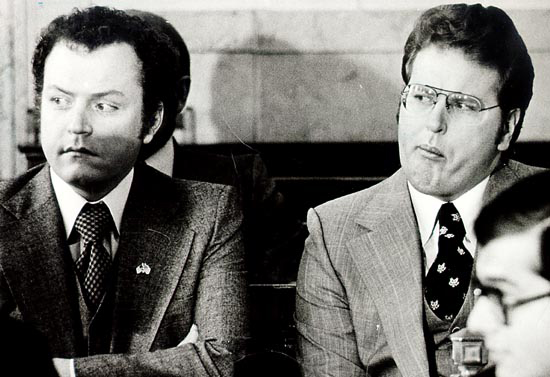
Oh, what the Supreme Court will protect as free speech.
This Briefing is PG-13 and disgusting, but unique look at free speech in America.
After pornographer and publisher Larry Flynt’s Hustler Magazine printed a disgusting parody of the reverend (for a good summary, read here), Falwell sued him for libel and claimed to suffer severe emotional distress. Here are two clips from the film The People vs. Larry Flynt. The first is a trial court cross examination of Falwell by Flynt’s attorney. The second is a Supreme Court re-enactment of the appeal.
Multiple-Choice Questions.
Here is a passage from the Supreme Court’s opinion regarding the First Amendment appeal of the verdict in hte libel lawsuit filed by Jerry Falwell against Flynt. The correct answers will appear below the questions after a brief delay.
1. Based on the Court’s opinion, which of the following would the authors agree with?
(A) Opinions and insults are not needed in public discourse.
(B) The First Amendment protects the press when lying about others.
(C) Government should not deny free speech rights, especially when critical of public figures.
(D) When speech is gross and repugnant to an obvious majority, then government can punish or suppress it.
2. Which of the following ideological perspectives parallels this passage?
(A) If speech or an expression of ideas hurts someone, government should prevent it.
(B) We cannot chill the First Amendment as this will limit a free flow of ideas.
(C) A state or local government should be able to define what is lewd and offensive.
(D) If a jury can punish individuals and the press for this kind of smut, people and publications would be nicer.
And the answers are . . . C and B
What unique vocabulary terms did you see that you were not familiar with? How might knowing these terms help you answer the question?
Photo/Image: DrLevingston2 / CC BY (https://creativecommons.org/licenses/by/3.0)